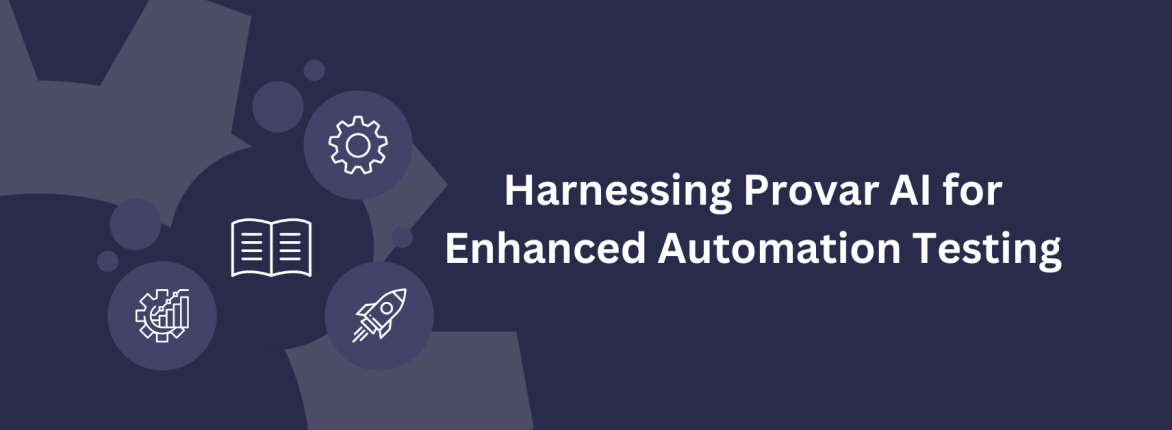In today’s digital world, everything changes — all the time and sometimes all at once. Low-code development has enabled organizations to accelerate innovation and drive business forward in this fast-paced landscape. However, as low-code platforms like Salesforce continue to dominate, the importance of robust testing strategies won’t diminish. A solid testing strategy has never been more important in an era of low-code development.
In this blog, we delve into declarative testing—what it is, why it matters, and how it can give your organization a competitive edge.
The Power of Declarative Testing in Modern QA
Understanding the Low-Code Revolution
Low-code development is experiencing unprecedented growth, fueled by the need for rapid digital transformation, the democratization of development, and a monumental shift in how we work. With platforms like Salesforce leading the pack, low-code development has empowered citizen testers — individuals without extensive coding experience — to contribute meaningfully to app creation, development, and innovation.
While the rise in low-code development signifies a shift toward faster, more accessible application development, it also brings unique challenges — particularly in testing and quality assurance.
The Role of Declarative Testing
Declarative testing is a strategic approach for testing low-code applications. It aligns perfectly with the principles of low-code development. Unlike imperative testing, which focuses on detailed test execution steps, declarative testing describes what the test needs to accomplish. This approach mirrors the ethos of low-code development, where simplicity and speed matter most.
Why Declarative Testing Matters?
Declarative testing can be transformative in the low-code development landscape for several reasons:
- Speed and Agility: Declarative testing accelerates the testing process, ensures timely feedback, and allows quicker time to market for applications by enabling faster test creation through low-code or no-code intuitive interfaces.
- Democratization of Testing and Development: Just as low-code empowers citizen developers, declarative testing lowers the barrier to entry for testers of all skill levels. This inclusivity fosters collaboration and enables organizations to tap into a broader talent pool for testing.
- Enhanced Visibility, Confidence, and Collaboration: Declarative testing gives organizations greater visibility into software quality throughout the development lifecycle. By incorporating testing at multiple points in the process, teams can identify and address issues earlier and boost confidence in release decisions.
Transitioning from Manual to Declarative Testing
Manual testing is important in any conversation; it is the first and most accessible way to start any testing strategy. Companies can benefit from switching from manual testing to declarative testing, especially regarding scalability, repeatability, dependability, and efficiency. It’s easy for organizations to align testing with their current quality and testing paradigms. This makes it a natural choice for teams that want to automate tasks but don’t have much coding experience. Declarative testing can be a natural bridge for scaling your organization’s quality and testing strategies.
Choosing the Right Declarative Testing Solution
Not all testing solutions are created equal in the low-code landscape. With its complexities, unique coding, and frequent updates, Salesforce requires a specialized testing solution and a robust, reliable strategy.
Provar Automation is a standout among automated testing solutions, offering metadata-driven testing capabilities designed with Salesforce in mind (with plenty of capabilities to cover you end-to-end across other solutions, too!). With Provar Automation, organizations can streamline test creation, prioritize ease of adoption, and ensure compatibility across Salesforce releases. Provar Automation helps teams build resilient tests that withstand changes and minimize maintenance efforts by leveraging Salesforce metadata. With features like click-based test creation and comprehensive reporting, Provar Automation empowers organizations to achieve their testing objectives confidently.
Embracing the Future of Testing
As low-code development dominates the digital landscape, testing will become increasingly important. By leveraging their low-code development strategy, purposeful testing can help organizations mitigate business risk. By investing in a powerful, data-driven declarative testing solution like Provar Automation, organizations can future-proof their testing and maintain a competitive edge in today’s dynamic marketplace.
Want to learn more? Download our free white paper, Declarative Testing: A Strategic Edge in a Low-Code World, or connect with a Provar expert today!










